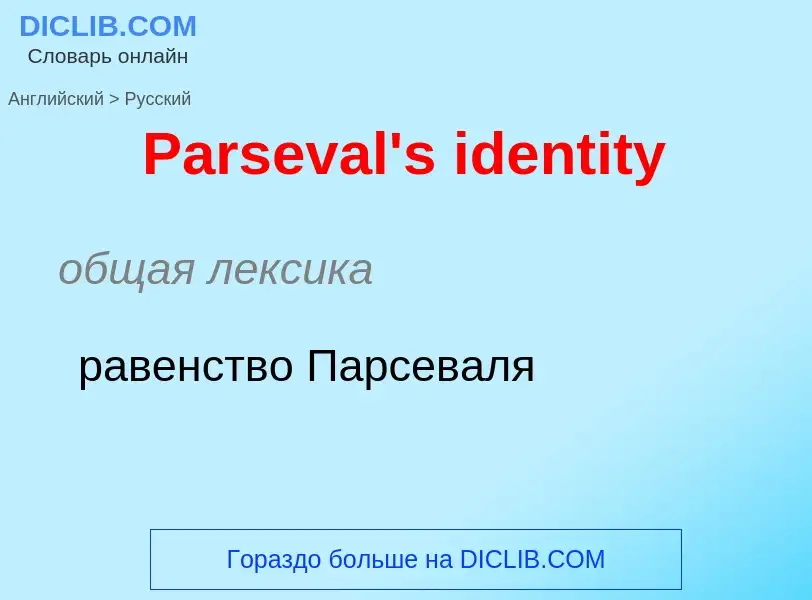Translation and analysis of words by ChatGPT artificial intelligence
On this page you can get a detailed analysis of a word or phrase, produced by the best artificial intelligence technology to date:
- how the word is used
- frequency of use
- it is used more often in oral or written speech
- word translation options
- usage examples (several phrases with translation)
- etymology
Parseval's identity - translation to russian
общая лексика
равенство Парсеваля
['seimnis]
общая лексика
сходство
тождество
существительное
общая лексика
сходство
подобие
одинаковость
единообразие
тождество
однообразие
монотонность
одинаковость, сходство, единообразие
Definition
Wikipedia
In mathematical analysis, Parseval's identity, named after Marc-Antoine Parseval, is a fundamental result on the summability of the Fourier series of a function. Geometrically, it is a generalized Pythagorean theorem for inner-product spaces (which can have an uncountable infinity of basis vectors).
Informally, the identity asserts that the sum of squares of the Fourier coefficients of a function is equal to the integral of the square of the function,
where the Fourier coefficients of are given byMore formally, the result holds as stated provided is a square-integrable function or, more generally, in Lp space A similar result is the Plancherel theorem, which asserts that the integral of the square of the Fourier transform of a function is equal to the integral of the square of the function itself. In one-dimension, for
Another similar identity is a one which gives the integral of the fourth power of the function in terms of its Fourier coefficients given has a finite-length discrete Fourier transform with number of coefficients .
if the identity is simplified to
